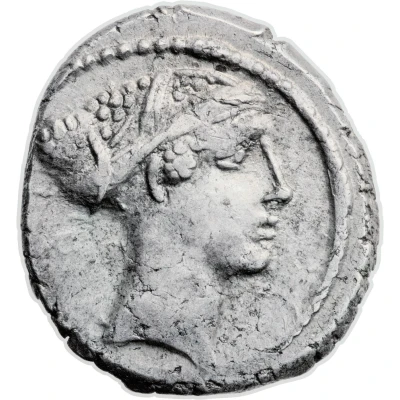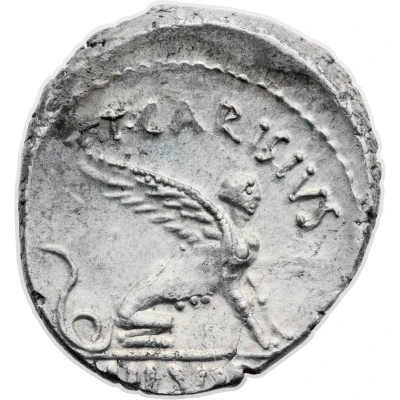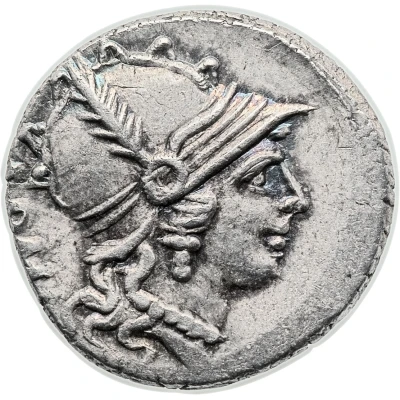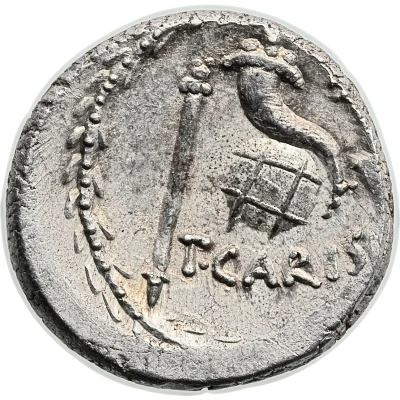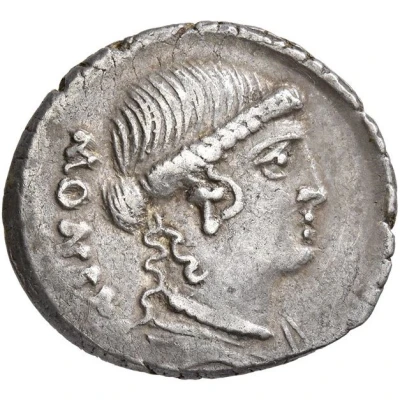


© Leu Numismatik
Denarius Carisia: Titus Carisius; T•CARISIVS 46 BC
46 BC year| Silver | 3.43 g | 19 mm |
| Issuer | Rome › Roman Republic (509 BC - 27 BC) |
|---|---|
| Period | Republic (509 BC - 27 BC) |
| Type | Standard circulation coin |
| Year | 46 BC |
| Value | Denarius (1) |
| Currency | Denarius of 16 Asses (141 – 27 BC) |
| Composition | Silver |
| Weight | 3.43 g |
| Diameter | 19 mm |
| Shape | Round (irregular) |
| Technique | Hammered |
| Orientation | Variable alignment ↺ |
| Demonetized | Yes |
| Updated | 2024-10-06 |
| Numista | N#384965 |
|---|---|
| Rarity index | 89% |
Reverse
Anvil die with garlanded punch die above; on left, tongs; on right, hammer. Laurel-wreath as border.
Script: Latin
Lettering: T•CARISIVS
Translation: Titus Carisius
Comment
The gens Carisia was a Roman family during the latter half of the first century BC. The most famous member of the gens was Titus Carisius, who defeated the Astures in Hispania circa 25 BC; but in consequence of his cruelty and insolence, the Astures took up arms again in 22 BC.Interesting fact
One interesting fact about the Denarius coin is that it features a portrait of Titus Carisius, a Roman politician and military leader, on one side, and a representation of the goddess Ceres on the other. This coin was minted during a time of political turmoil in Rome, just a few years before the assassination of Julius Caesar in 44 BC. Despite the turmoil, the Denarius remained a widely used and trusted form of currency throughout the Roman Empire.
